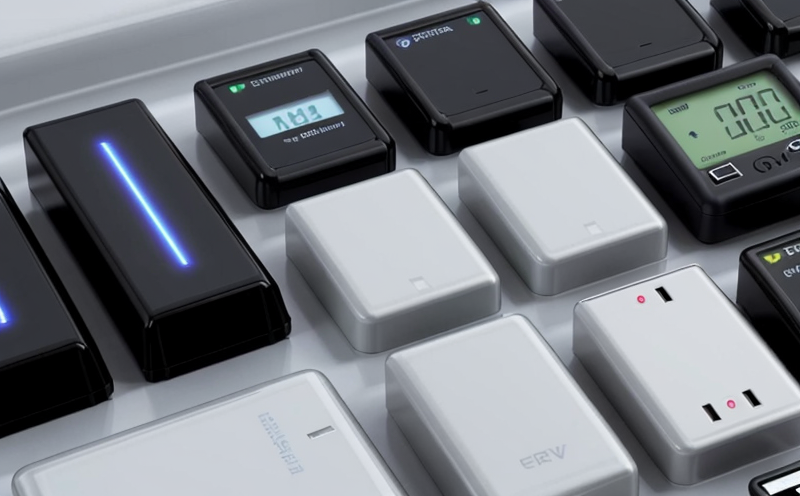Capacity verification for batteries used in medical devices and implants
Capacity Verification for Batteries Used in Medical Devices and Implants Ensuring Safety and Reliability
In todays technologically advanced world, medical devices and implants have become an integral part of healthcare services worldwide. From pacemakers to insulin pumps, these devices rely heavily on batteries that store energy to power their operations. However, the performance and lifespan of these batteries directly impact the effectiveness and reliability of the device itself.
Capacity verification for batteries used in medical devices and implants is a critical laboratory service that ensures the batterys capacity meets the required standards. As a leading provider of laboratory services, Eurolab offers comprehensive capacity verification testing to guarantee the safety and reliability of your medical devices and implants.
The Importance of Capacity Verification
In medical devices and implants, batteries are responsible for providing power to critical functions, such as pacemaker pacing or insulin infusion. A battery failure can lead to device malfunction, potentially resulting in serious health consequences or even fatalities. Moreover, regulatory bodies, like the FDA (Food and Drug Administration), require manufacturers to ensure that their products meet specific performance standards.
Capacity verification is essential for businesses involved in medical devices and implants because it
Ensures compliance with regulatory requirements
Validates battery performance and reliability
Minimizes device malfunction and associated risks
Enhances patient safety and confidence
The Benefits of Capacity Verification
At Eurolab, we understand the significance of capacity verification testing. Our comprehensive service offers numerous benefits to medical device manufacturers, including
Improved Device Performance By verifying battery capacity, you can ensure that your devices operate as intended, providing consistent performance and reducing the risk of malfunction.
Enhanced Patient Safety With reliable batteries in place, patients can trust that their medical devices will function correctly, minimizing the risk of adverse events or fatalities.
Reduced Costs Regular capacity verification testing helps identify battery degradation early on, allowing for proactive replacement and reducing maintenance costs associated with device failures.
Increased Compliance By adhering to regulatory requirements through capacity verification, you can avoid costly recalls, fines, or reputational damage.
Competitive Advantage Companies that invest in capacity verification demonstrate a commitment to quality and patient safety, setting them apart from competitors and building trust among healthcare professionals and patients.
Key Benefits of Eurolabs Capacity Verification Service
Our comprehensive capacity verification testing includes
Analysis of battery performance and reliability
Verification against industry standards (e.g., IEC 61980-1 for lithium batteries)
Evaluation of device-specific requirements (e.g., temperature, humidity)
Eurolabs expertise in capacity verification ensures that your medical devices and implants meet the required standards, providing you with
Confidence in Device Performance We provide detailed reports highlighting battery performance and reliability.
Comprehensive Testing Our state-of-the-art facilities and experienced team conduct thorough testing to ensure accurate results.
Capacity Verification Testing Methods
Eurolab employs a range of advanced methods to verify battery capacity, including
Galvanostatic cycling (GSC)
Potentiostatic cycling
Electrical characterization
These tests provide comprehensive data on battery performance, allowing us to identify potential issues early on and recommend corrective actions.
QA Capacity Verification for Batteries Used in Medical Devices and Implants
Q1 What is capacity verification testing?
A1 Capacity verification testing measures the ability of a battery to store electrical energy. It ensures that batteries meet industry standards and are reliable for powering medical devices and implants.
Q2 Why is capacity verification essential for medical devices and implants?
A2 Medical device manufacturers must ensure their products comply with regulatory requirements, and capacity verification helps validate battery performance and reliability.
Q3 How does Eurolabs capacity verification service benefit businesses?
A3 Our comprehensive testing provides confidence in device performance, ensures compliance with regulations, reduces costs associated with device failures, and enhances patient safety.
Q4 What types of batteries can be tested using Eurolabs capacity verification service?
A4 We offer capacity verification testing for a range of battery types, including lithium-ion, nickel-metal hydride, and other chemistries used in medical devices and implants.
Conclusion
Capacity verification is no longer an optional step in the development and production process of medical devices and implants. At Eurolab, we understand that this critical laboratory service ensures patient safety, device performance, and regulatory compliance.
By partnering with us for capacity verification testing, you can
Enhance patient safety
Reduce costs associated with device failures
Increase compliance with regulations
Gain a competitive advantage
Dont wait until its too late. Contact Eurolab today to learn more about our comprehensive capacity verification service and ensure your medical devices and implants meet the highest standards of performance, reliability, and safety.




